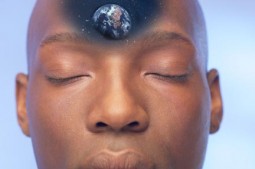Chaos and Consciousness
 “For Teresa of Avila, Divine chaos was God’s way of creating an upheaval in order to break through patterns of denial that held a person emotionally or mentally captive. Or Divine chaos brought about necessary endings to ways of living that ceased to serve the well being of humanity. Whether the task you are attending to is personal or professional, it is essential that you put conscious thought into it, that you do it with as much awareness as you can, given the reality that none of us can be that aware each day. But realistically, the point being driven home by Teresa as well as other great mystics is that when you become too accustomed at what you are doing – too bored or too familiar – you retreat into unconsciousness. You no longer have to push yourself toward consciousness. You reach a place where you let habit and familiarity do all the work for you – and that is a danger zone, a serious danger zone and a prime set up for an encounter with chaos. Why would that be?
“For Teresa of Avila, Divine chaos was God’s way of creating an upheaval in order to break through patterns of denial that held a person emotionally or mentally captive. Or Divine chaos brought about necessary endings to ways of living that ceased to serve the well being of humanity. Whether the task you are attending to is personal or professional, it is essential that you put conscious thought into it, that you do it with as much awareness as you can, given the reality that none of us can be that aware each day. But realistically, the point being driven home by Teresa as well as other great mystics is that when you become too accustomed at what you are doing – too bored or too familiar – you retreat into unconsciousness. You no longer have to push yourself toward consciousness. You reach a place where you let habit and familiarity do all the work for you – and that is a danger zone, a serious danger zone and a prime set up for an encounter with chaos. Why would that be?
After all these years of teaching, some things still baffle and challenge me again and again, among them is, “What exactly is this business of consciousness about that we are in if not to become conscious?” When anything becomes habit, in particular your life, what becomes of the challenge of becoming conscious? How is that task supposed to be accomplished? Of what are you supposed to become conscious? (Please don’t tell me your wounded history). Ideally, our task is to become conscious of how we direct the power of our spirit into acts of creation during the course of our life. More or less, that sums it up. An illuminated soul is one who is on to the game, who really understands what Buddha meant by seeing clearly through the world of physical illusion and not being controlled by that world. Jesus would say, “Be in the world but not of the world.” Same truth, different words. What we are meant to become conscious of is how well we live in accordance to these high cosmic truths while in physical form.
When are you melting too much into the world of illusion, for example? Do you know? Can you recognize when that sensation of melting is happening to you? Are you able to say to yourself, “Careful, I am now losing my power in this conversation because I am becoming frightened?” And then, equally if not more important, are you able to detach from that conversation and potential fear once you spot it? If not, you become captured by the illusion, by a fear that you should have been conscious enough to protect yourself from as this is what your inner work is all about: learning to discern what is truth from illusion – at all times, in all places. That test never stops, it never goes away. The moment you think you have conquered a part of yourself is the moment you are tested, like the addict who announces he has won his war with alcohol, only to discover that his hubris is his downfall. Consciousness is hard work and when we slip, which we all do, the net that catches us when we fall is chaos itself.
The common thread in every experience of Divine chaos is one of truth; specifically, a person has fallen out of alignment with his or her core truths. Divine chaos is a course corrector, a way of bringing down the systems that distraction built in order that they can be replaced with systems or structures designed with conscious thought. That’s the ideal, of course, and ideals are rarely achieved – thus, we are visited by Divine chaos again and again. It is not easy, this business of becoming a conscious human being, but what’s your other option?”